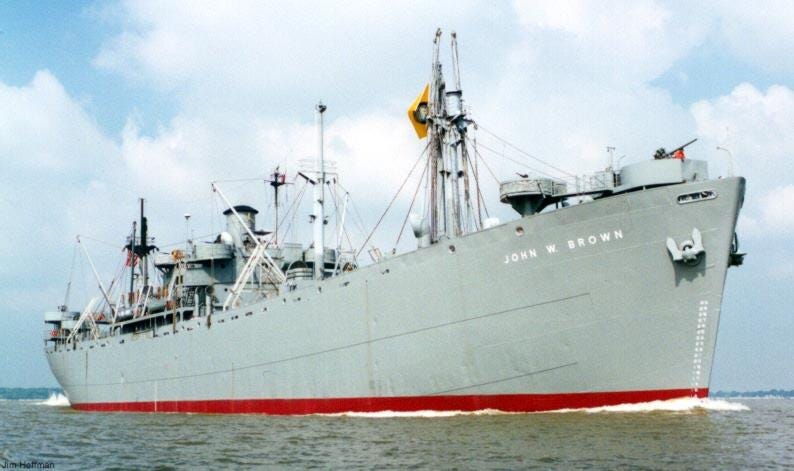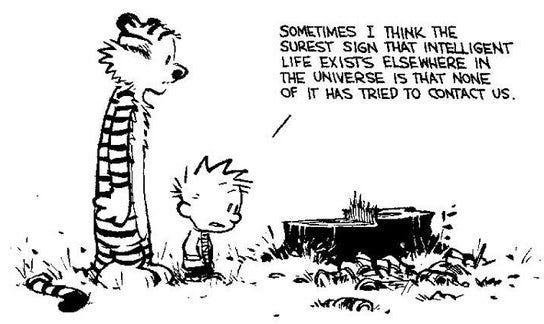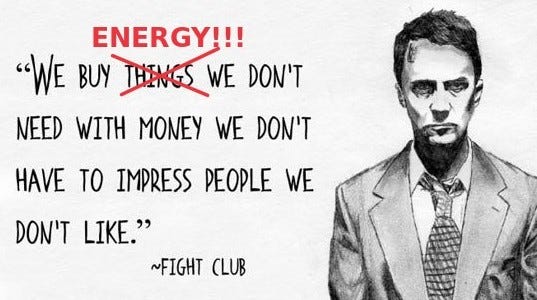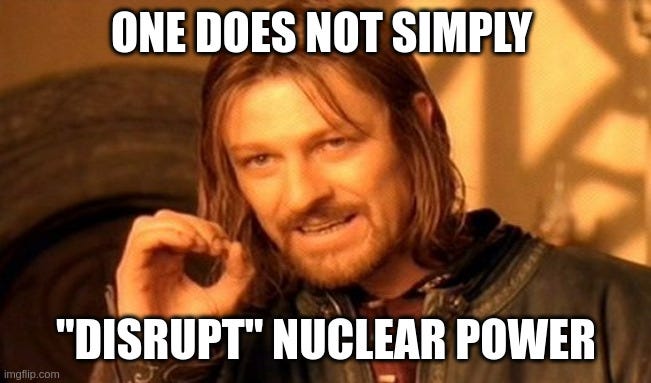A nuclear power offer that you cannot refuse
It's about "less", but REAL innovation, for a change.
Some context first
When Italy held three referendums about nuclear power, a few decades ago, I voted against it. The main reason I still recall is very low trust, with Chernobyl , Bhopal and even Seveso still fresh in my mind, not in nuclear per-se, but in the capability of Italian administrations to ever build or manage nuclear plants safely.
Now, being a different person in a very different world, I have come to the conclusion that our societies need also nuclear power, and need it now, albeit in the way and context explained here, that are probably quite different from those of many supporters of nuclear.
IMPORTANT: I am NO nuclear power expert. I am just a popularizer, and before that just a concerned human being, looking for verification of certain ideas, solutions that are less impossible than others, and as much productive discussion as possible on this and the underlying topics.
Side note to no-nukes, preppers, and doomers in general
Many people are against anything nuclear period. Many others are absolutely convinced that discussions are useless because it's just too late to save any semblance of modern society and urban life period, everybody please just fend for themselves.
To all these people, I say: just stay a few minutes!, because I trust at least some of you will find certain ideas not so bad after all, or at least much closer to your particular interests than you may suspect.
For example, hard preppers may like an approach that (while coming from the same guy who said TEOTWAWKI prepping and metaverse are the SAME dead end) may keep around, much longer than others, the only places where they can get all the high-tech weapons, ammo, medicines, long storage foods... that they need to survive "outside of" civilization.
All the others, instead, coudl hopefully find the whole proposition much less nuclear, much less impossible and much less inhuman than all the others around.
Flash recap of the pros and cons of nuclear power
Some of the pros:
nuclear plants can be built in locations unsuitable for wind, solar or hydro power
nuclear plants need much, MUCH less space than wind or solar to produce the same energy
since they require no stable weather or batteries, nuclear plants are a much better match than renewables for certain facilities we desperately need to save crumbling vital infrastructures, as confirmed by the interest in nuclear power for steel foundries and cement factories
the volume per GW of nuclear waste is so much smaller than that of toxic waste from fossil fuels, and maybe also than that of dismissed wind turbines and spent solar panels, that managing it properly is much cheaper and easier
nuclear plants designed today are much safer than in the past, and AI may help to make them even safer (see also here)
The main cons (for waste, see the Appendix)
most nuclear plants need uranium that could only come from Russia
waste, of course. See Appendix
nuclear plants have very high costs and construction times
availability of water for cooling, and management (or lack thereof) of the hot water produced
more misinformation around nuclear power than around renewables?
Why I changed my mind about nuclear power
Persisting poverty or increasing inequality in many parts of the world, as well as proliferation of wars too often due to, or heavily influenced by, energy dependency (including Ukraine and Gaza, of course)... seem more than enough reasons to me to urgently reboot energy strategies, even if environmental issues did not exist. And exactly because the biggest problems they must solve are not powering chatGPT or blockchains but stuff like poverty, inequality and wars, new energy strategies must be solutions that work as quickly and fairly as possible, everywhere.
Using also much more nuclear power than today seems to me the only solution compatible with (besides human rights) both the leapfrogging needs of developing countries and with "developed" but aging populations that, unless they stay or concentrate even more in cities (not "smart" cities, of course, cities like these!) will just starve in droves if trying to ”grow their vegetables by themselves”.
I changed my mind about nuclear also because questioning its specific safety, costs and so before those of other choices is, honestly, little more than a hobby. Producing as much energy as any "Business As Usual" (BAU) forecast requires is just impossible, no matter which combination of energy sources you mix. The amounts of energy, raw materials and skilled workers needed to ("enough" and "fast enough" are key here):
make and deploy enough fossil fuel plants, nuclear reactors, dams, solar panels, wind turbines, whatever...
fast enough to make the 8 billion humans alive today live at western-comparable living standards the majority of the time that remains them on this marble
just don't exist. Not without killing or letting die, in order to get their share, one billion or so of those humans in this and the next generation, that is. I refuse, and I sure hope you will too.
Luckily, the FIRST way to make nuclear and ANY other power both safer and cheaper has nothing to do with energy, and it's totally under control of western countries.
The FIRST way to make nuclear and ANY other power safer and cheaper
(if you really ONLY care about nuclear in and by itself, skip this paragraph, but in my humble opinion it would be a mistake)
Whatever the number of nuclear reactors the world really needs is, it is quite lower than whatever the BAU camp would say. That is, from a purely quantitative point of view, giving everybody enough energy to live well is a smaller problem than it may seem.
Because we "First World" folks should all start using much less energy than today anyway, even if unlimited energy was available, not for altruism, but for our own good.
I am not talking of going back to 19th century living! Last week, I wrote that we must all "slow down" because it's good for us. A considerable reduction of both individual and collective energy consumption is just an unavoidable consequence of slowing down like that. Consider habits like
chatGPT and blockchains to make resumes and NFTs
mixing AC and DC electricity (this will be a future post)
hustle culture, bullshit jobs and other lifestyles that increase opioid and loneliness epidemics
uselessly big and fast cars, and the very idea of mass transit with private cars
moving food literally back and forth around the planet, a.k.a. "reimportation
paying gyms or drugs, to remain able to pay more food than it's fit to eat
electric dryers instead of clotheslines
AND gender reveal parties, AND "Peak Pet" gadgets like "AI cat doors", AND McMansions, AND...(add your items in the comments!)
How much money, that is energy, did you or whoever collected your tax money waste running, on those things in the last five years, instead of slowing down on them?
Too many of us do plenty of things (again: both individually and as a society) that make us run like lemmings just to pay for them, without real reasons or benefits. Such self harming stuff needs to go yesterday, because it's terribly stupid in and by itself, a veritable embarrassment for the whole universe:
The fact that getting rid of all that stupidity also makes energy problems smaller, that is much easier to deal with, without impacting real quality of life, it's just an extra bonus. As far as nuclear is concerned, it means needing much less fuel and money to find, and much less waste to deal with.
This said, to live well AND peacefully we also need distributed energy independence. Since urban life and a certain amount of high-tech, energy intensive industry must remain, it's much better if cities and factories don't depend on someone who, be it their own national government or some remote "rogue state", is just too far away to guarantee stable and fair access to the energy needed to live well.
Hence, Small Modular Reactors (with a BIG twist)
Small Modular Reactors (SMRs) are actual nuclear reactors that, unlike Chernobyl or Three Mile Island, are
much safer by design (as would any other reactor designed today, of course)
smaller. Much smaller. Think shipping container small. Stuff portable by ordinary trucks, as close as possible to their end users (less grid!), taking less land than the cafeteria of traditional reactors
modular, meaning that your city or county can buy and install only the number they actually need, and easily order more identical units, if and when it becomes necessary
The total cost of power from reactors like these could be sensibly smaller than those of traditional ones, and their water requirements too. Above all,
by being small, city- or even neighborhood-level solutions, SMRs are more democratic
unlike traditional reactors, SMRs can be "mass-produced" in large numbers (large for reactors, that is), reusing all the same tools and skills, in dedicated factories
If you think these two features are no big deal, you are wrong. First, if some nuclear power is essential to live well, without SMRS it would remain too complex, remote and big, as in "only autocracy can save nuclear power" big.
Even the "serial production part" is extremely important. A standard reactor that is pre-certified, field-proven thanks to previous installations and, for the same reasons, it's easy to build and manage with personnel who already knows it, is a big deal indeed.
The reason is that a really big part of the cost of traditional reactors its exactly the money and time (which is money too, of course, e.g. interest payments on loans taken to build the reactor) that it takes to get every new, more or less customized reactor designed, tested, and approved by regulators practically from scratch, every time in a different way.
In a nutshell, I feel that more nuclear, soon, is unavoidable even after making our lives less stupid, and that SMRs seem by far the best way to get it. The problem, of course, is whether SMRs really make sense or not, technically and economically.
A Clean Technica article just says no, not at all, because practically all the SMRs seen so far are just a bunch of old lab technologies that, besides depending on uranium from Russia, are physically unable to produce power cheaply, and lack all the other conditions to be economically viable in the 21st Century.
But that piece also gives me hope, because it argues that this failure happened because, freely mixing from the original:
...[without bothering to actually learn] about energy, electricity and the grid; ignoring most of history's lessons; [and dismissing] that they don't have a major economy and geography backing a winner and forcing it to success, no matter what it costs...
...a bunch of Dunning Krugered up, absurdly wealthy tech bros and women wasted a lot of venture capitalist money to treat nuclear as just another market ripe for "move fast and break things" disruption
that is, because of FAKE, obsolete innovation. IF SMRs have failed for THOSE reasons yes, of course I'm hopeful.
The way out: Liberty SMRs
Living As Usual (LAU) is, as I summarized, the stupid opposite of both personal and public health. Demands and plans for enough energy to keep LAU going should be dismissed on that ground alone.
That implicit premise of every adult discussion on energy policies, that makes nuclear or any other source much easier to deal with, is best managed at national, or even local level. Providing the necessarily nuclear part of the energy that's effectively needed, however, is a very different issue.
The same piece that mocks "Dunning Krugered up" SMRs also points out that the common denominator of successful traditional nuclear programs worldwide was to be:
national strategic programs, with subordinate corporate partnerships
with one entity that enforced a single design for all of the reactors.
running for decades to build "dozens of nuclear reactors to maintain the teams and momentum and to share lessons learned"
Interesting, isn't it? Besides stimulating general discussions on the upstream issues, I wrote this specific piece exactly to verify a connection among all these and other dots that seems unavoidable to me: the only way to provide that quote of nuclear power is SMRs, but not your yesterday's SMRs. Not at all.
Eighty years ago, in order to "bring liberty back to Europe" the Liberty and Victory shipbuilding programs made eighteen independent shipyards build more than 3200 cargo ships between 1941 and 1946, with a maximum throughput of three ships every two days, exactly because it was one model of ship, with distributed manufacturing.
Those programs "played a major role in winning the war". Today, I argue that a worldwide "Liberty SMR" program that "forces to success" the smallest possible number of standardized SMRs with ALL these characteristics is possible and absolutely needed:
truly international
no dependance on nuclear weapons programs
not-for-profit, driven by P2P and subsidiarity principles
lead by experts who really know the problem
fully open designs of all the hardware and software, that everybody can inspect, with a bounty program for whoever finds flaws or bugs
providing full documentation on how to build, install and manage the SMR, training materials, certification procedures, minimum requirement for builders, etc..
freely usable by any company that wants to build them (verifying their compliance with the minimum requirements above and authorizing them to work would be the responsibility of local governments)
actively promoted to every government in the world, also with subsidies, because it's ridiculous to tell them "no fossil fuels", without viable alternatives, which is exactly what happened at COP28
Your turn now
If you dislike the idea, please explain why. If you like it, share it as much as you can and do tell your politicians to support it, especially if you are one of the two billion humans who will vote in 2024. Oh, and of course please help me to do more technology explorations like this, either here with a paid subscription, or outside Substack if you prefer.

Appendix: starting reading list on risks of nuclear waste and non-uranium fuel for SMRs
(again, I'm not an expert etc... and you're welcome to add related links in the comments) Nuclear Waste:
Beyond Uranium and Russia:






Greetings, I am not sure which post I am replying to concerning artificial Intelligence and robotics. I wrote a proposed law in my book "Dreaming of a Better World" I would like to share. Article 19 of the Constitution I drafted titled "Right and Duty to Work" states in the last paragraph: "Robotic and Artificial Intelligence Devices cannot replace humans in the workplace unless the tasks they perform would significantly reduce the risk to human health and safety or create more jobs than they would ultimately eliminate."
I agree that we need to propagate nuclear power plants. However, SMRs are a great idea they have one major hurdle to solve - security. Terrrorists would love to get their grubby hands on nuclear waste, fuel or the SMR itself. They can do nothing with windmills and solar arrays to further their agendas. Your post is contains a treasure trove of information. Your lead-in about not trusting the Italian government to run nuclear facilities foretolds the future.